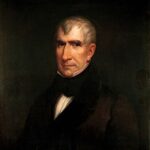Harrison’s Constitutional Pledge
William Henry Harrison made an unprecedented commitment to presidential power limits in his March 4, 1841 inaugural address. He voluntarily pledged to serve only one term as president. This decision demonstrated remarkable constitutional restraint in an era of expanding executive authority. Harrison also promised to respect congressional supremacy over legislation.
The Political Context
The Whig Party faced significant Democratic opposition in 1841. ⚖️ Democrats feared potential Whig authoritarianism after Andrew Jackson’s controversial presidency. Harrison’s self-imposed constraints directly addressed these concerns about executive overreach. His commitment helped legitimize the peaceful transfer of power between parties.
Constitutional Principles
Harrison’s decision reflected deep reverence for constitutional separation of powers. He explicitly rejected the Jacksonian model of strong executive leadership. 📜 The president pledged to defer to Congress on major policy decisions. This approach emphasized legislative supremacy over presidential decree. Harrison viewed his role as executing laws rather than creating them.
Impact:
Immediate Democratic Response
Harrison’s commitment to presidential power limits significantly eased Democratic fears. Opposition leaders praised his constitutional restraint and cooperative approach. The decision reduced partisan tensions during the crucial transition period. 🤝 Democrats expressed cautious optimism about Whig governance under Harrison’s leadership.
Long-term Constitutional Legacy
Harrison’s pledge established important precedents for executive restraint. His approach influenced subsequent discussions about presidential term limits. The decision reinforced constitutional principles of checks and balances. 🏛️ Later presidents would reference Harrison’s model when facing questions about executive authority. His commitment helped define appropriate boundaries for presidential power.
Impact on Democratic Governance
The decision strengthened America’s democratic institutions through voluntary power limitation. Harrison demonstrated that presidents could voluntarily constrain their authority. This precedent helped establish norms about presidential behavior and constitutional respect. 🗳️ His approach promoted peaceful political competition between parties. The commitment showed how democratic leaders should prioritize institutional integrity over personal power accumulation.
